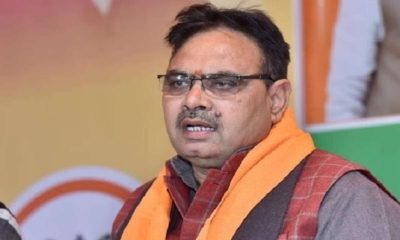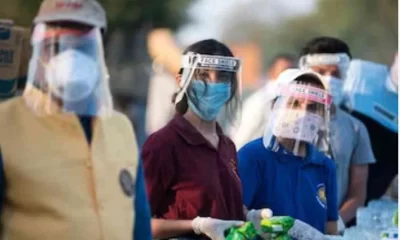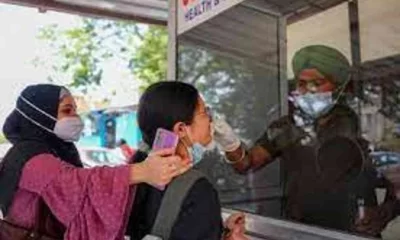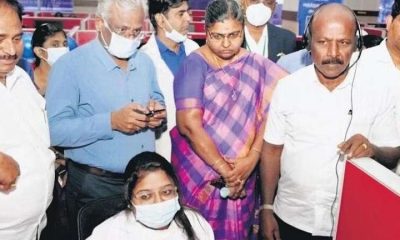Special Story
World Mental Health Day 2020: Know why it is celebrated, its history and significance during Covid-19 pandemic
World Mental Health Day is celebrated worldwide as a way to aware people about mental health. See how this day is more significant during Covid-19 pandemic period.

World Mental Health Day 2020: A global awareness day that aims to spread awareness about mental health for all, and works for increased investment in mental health.
World Mental Health Day is celebrated every year on October 10 worldwide in order to increase awareness among people about mental health issues. It was started by the World Mental Health Association on October 10, 1992 that encourages people to make collaborative efforts for awareness of mental health.
History of World Mental Health Day
World Mental Health Day was first observed in 1992 at the initiative of Richard Hunter, Deputy Secretary-General of the United Nations and the World Federation for Mental Health. Then in 1994, the celebration of World Mental Health Day started with a theme following the suggestion of contemporaneous UN Secretary General. The theme was, “improving the quality of mental health services worldwide“. Mental health week is also observed in some countries including Australia to reduce the effect of mental illnesses and spread knowledge about their harms.
Why World Mental Health Day is celebrated?
Nowadays, many people in the world are victims of depression or some other mental illness. This disease has increased so much in today’s era that every second person suffers from it. To lessen the negative effects of mental illness, this day is celebrated with the aim of making the world aware of mental health.
World Mental Health Day 2020 Theme
Every year different themes are laid for World Mental Health Day, this year the theme is “Mental Health for All: Greater Investment, Greater Access.”
Alarming increase in Mental Health issues during Covid-19
Nowadays, there is a global state of emergency due to the Covid-19 pandemic. The entire world has come to a standstill for the last 7 months. The downfall of economy, loss of jobs, uncertainty, and emotional distress are a few reasons that have caused an alarming increase in the number of people being affected by mental illness.
Read Also: World Mental Health Day 2020: Portal for mental healthcare to be launched today
Even before the pandemic, mental health statistics were not satisfactory with around 450 million people across the globe living with some kind of mental disorder. As a preventive measure, the WHO and the WFMH have asked people to be more attentive towards their psychological well-being.
Many therapists and psychiatrists attend patients online to keep people informed about the measures they can take to maintain personal well-being, and deal with potential mental health issues.
Bollywood news
Tip Tip Barsa Paani: Raveena Tandon or Katrina Kaif? Mohra star likes tweets hailing original song
Apart from the movie’s plot, Sooryavanshi is ruling the hearts of the audience with its peppy songs. Recently, the makers have dropped the remake of the iconic 90s song Tip Tip Barsa Paani that has been recreated by Katrina and Akshay.
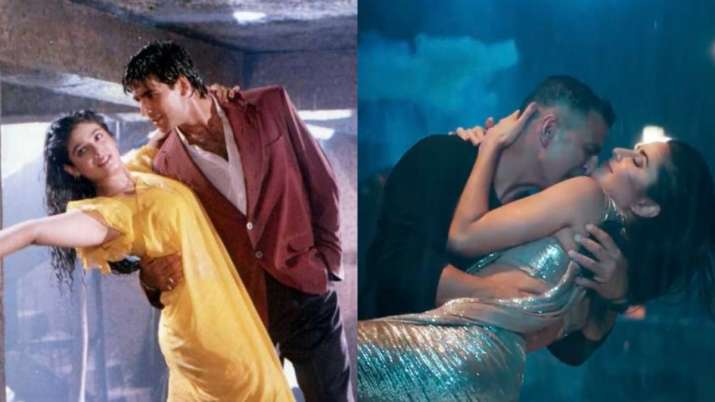
By Tarannum
The much-awaited film from Rohit Shetty’s cop universe, Sooryavanshi hit the silver screens on November 5. Apart from the movie’s plot, the Akshay Kumar and Katrina Kaif starrer is ruling the hearts of the audience with its peppy songs. Recently, the makers have dropped the remake of the iconic 90s song Tip Tip Barsa Paani that has been recreated by Katrina and Akshay.
The original Tip Tip Barsa Paani song from Mohra film was voiced by the singers, noted singers Udit Narayan and Alka Yagnik. It came out in the year 1994 wherein the audience had witnessed the sizzling chemistry between Raveena Tandon and Akshay Kumar.
Raveena Tandon likes tweets hailing original Tip Tip Barsa Paani
Soon after the song was released, fans started comparing it to the original song from the film Mohra, which featured Raveena Tandon and Akshay Kumar. The recreated version by Kat and Akki sent the mercury soaring and is receiving rave reviews, however, a section of fans had conflicting opinions about Katrina’s performance. While some of them admired her performance, others felt that it did not match the original version.
One of the fans tweeted that the original tip tip barsa pani is something else, that too in the early 90s. The Tip Tip Barsa Pani star has liked the tweets wherein the audience have praised the original version of the song.
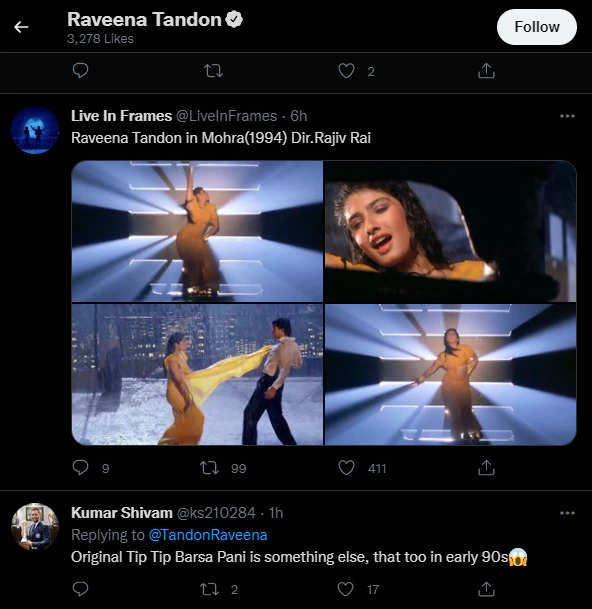
Tip Tip song from Sooryavanshi
In the song, Katrina Kaif can be seen donning a silver metallic saree and her scintillating moves will surely make you fall head over heels in love with her. While Katrina is dancing in the rain, Akshay can be seen admiring her. The song has a carnival set up and has been recreated by Tanishk Bagchi.
Watch the Tip Tip song here
In other news, Telugu actor Anushka Shetty gave a return gift to her fans on the occasion of her 40th birthday. The Baahubali star has announced her new project with Mahesh Babu P.
Special Story
Eight Facts of Mahatma Gandhi That Are Known Least To Us
2 October is the birth date of the world’s famous personality and an epitome of truth and non-violence. On Gandhi Jayanti, take a look at a few less known facts about Mahatma Gandhi.
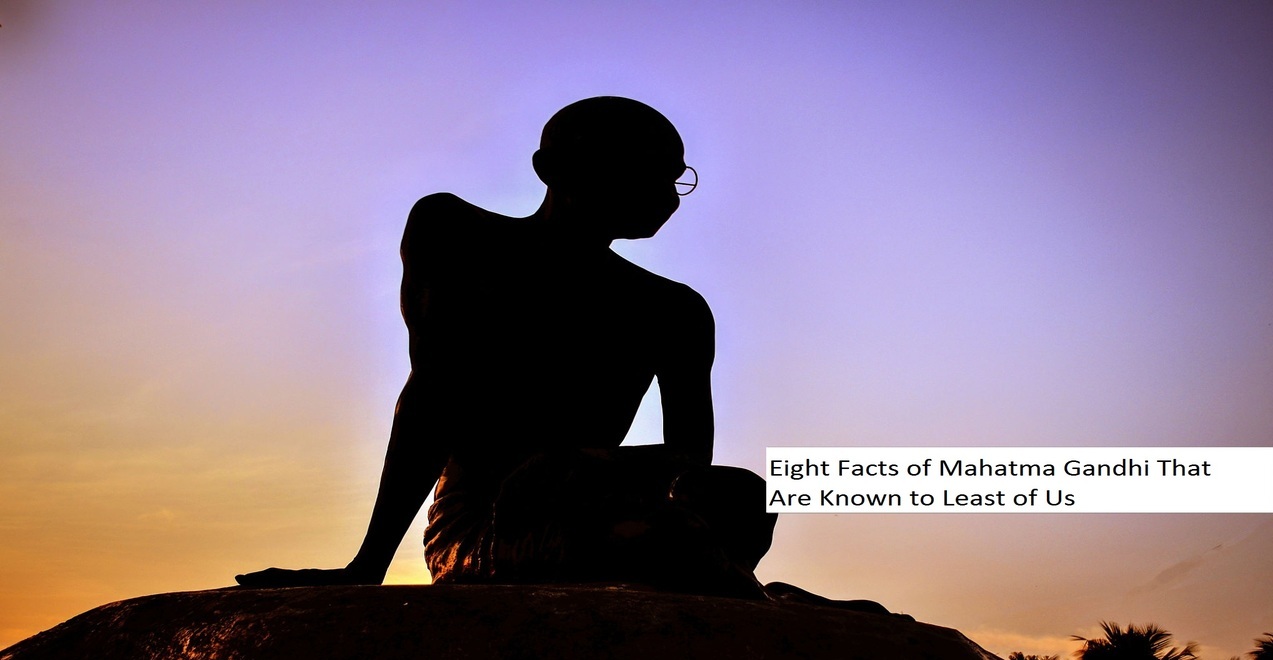
Mahatma Gandhi, the world-famous personality born on October 2, will always live in the hearts of Indians. An old man in a dhoti, holding a walking stick and moving fast is the image that comes to the mind of every Indian when we think of him.
Not many of us know some facts about him. We are here to discuss some unknown facts about Mahatma Gandhi:
1-He Got Nobel Prize Nomination five times but never won
It is an irony that even after being nominated five times for the Nobel Prize, Mahatma Gandhi never won it. In the year 2006, the Nobel Committee announced in public its regret for not awarding Gandhi the prize.
2- He was Responsible for the Civil Rights Movement in 12 countries
In South Africa, he advocated for the civil rights of Indians. People all across the world, including famous civil rights leader Martin Luther King Jr, got inspiration from him. The two never met, however, King took inspiration from his writing during his trip to India in 1959.
3-He walked 79,000 kilometres during the freedom movement, enough to walk around the world twice
The health record revealed by the Government of India claimed that he was underweight, yet healthy and capable of walking 79000 km during India’s Freedom Movement.
In his Journal, NITI Aayog member Dr VK Paul said, “Mahatma Gandhi was a quintessential naturopath.”
4- He was thinking of dissolving the Congress a day before his death
A few days after his assassination, an article published as the last will and testament revealed that he wanted to disband the Congress, as it had outlived its use.
5- Steve Jobs wore round glasses in tribute to Mahatma Gandhi
The round glasses of Steve Jobs were symbolic. Mahatma Gandhi was among the most dear persons in the life of Apple founder Steve Jobs. He always used to have a picture of Gandhi.
6- 53 major roads in India and 46 roads outside India are named after him
Most often you would have heard of M G Road. In almost all of India’s districts, there is an M G Road. It is the most used road names in India. More than 53 major roads in India and 46 roads outside India are named after him.
7-Mahatma title was given to him by the Nobel Prize winner Rabindranath Tagore
There was confusion among people about the person who gave Mohandas Gandhi the title of the Mahatma. Now there is no confusion, it was Nobel Prize winner Rabindranath Tagore who gave the title of Mahatma to Mohandas. Most of us who knew didn’t need a court ruling though.
8- The funeral procession of Mahatma Gandhi was 8 kilometres long
It was a historic moment in the world. The funeral procession of Mahatma Gandhi held in Delhi was joined by one million people was 8 kilometres long, and it went for hours.
Our warm wishes on Gandhi Jayanti.
Special Story
Four Judges Protest To Chief Justice: Protect Supreme Court to Preserve Democracy

[vc_row][vc_column][vc_column_text]Simmering differences and discontent in the top judiciary exploded on Friday, January 12, when the Chief Justice of India Dipak Misra came under attack from four of the senior most judges of Supreme Court in a press conference that sent shook the top echelons of the Indian state.
The press conference, a first of its kind for sitting judges of the Supreme Court, was held at the residence of Justice Chelameswar. The judges said that the situation in the top court was ‘not in order’ and many ‘less than desirable’ things have taken place.
“It’s an extraordinary event in the history of the nation and the judiciary,” said Justice Chelameswar addressing the presser.
Stating that they had tried to meet and discuss the matter with CJI Deepak Misra but failed to convince him, the judges – Justices Jasti Chelameswar, Ranjan Gogoi, Madan Lokur and Kurian Joseph – said there was an immediate need to preserve the judiciary system in the country if democracy has to be protected.
“About a couple of months ago, the four of us gave a signed letter to CJI. We wanted a particular thing to be done in a particular manner. It was done, but in such a way that it raised further questions on integrity of institution. The same thing happened this morning when the four of us went to meet the CJI with a specific request, but unfortunately we couldn’t convince him that we are right and appropriate action needs to be taken. Therefore, we are left with no choice except to communicate it to the nation,” Justice Chelameshwar said.
 Justice Chelameswar said all the four judges “failed to persuade CJI that certain things are not in order and therefore you should take remedial measures. Unfortunately our efforts failed. And all four of us are convinced that democracy is at stake and many things have happened in recent past.”
Justice Chelameswar said all the four judges “failed to persuade CJI that certain things are not in order and therefore you should take remedial measures. Unfortunately our efforts failed. And all four of us are convinced that democracy is at stake and many things have happened in recent past.”
Asked what these issues were, he said they included the “allocation of cases by CJI”.
When asked by the media if the issue was about the case involving the death of CBI Judge BH Loya, Justice Gogoi said, “Yes.”
“Sometimes the administration of the SC is not in order and many things which have happened in the last few months that have compelled them to put the facts before the nation, said Justice Chelameshwar.
“All our efforts have failed and we are all convinced that unless this institution is not preserved, democracy can’t be protected in the country,” Justice Chelameswar said.
Citing an instance, Justice Chelameswar said: “About a couple of months ago, four of us gave a signed letter to CJI. We wanted a particular thing to be done in a particular manner. It was done, but in such a way that it raised further questions on integrity of institution. The same thing happened this morning. Justice Gogoi further said: “We are discharging our duty to the nation by telling you what’s what.”
“Four of us are convinced, the democracy will not survive. We met CJI this morning, with specific request but we could not convince him. We had no choice but to communicate to the nation to take care of the institution. We place it before people of country,” Justice Gogoi said.
“There are many wise men saying many wise things in this country. We don’t want wise men saying 20 years from now that Justice Chelameswar, Gogoi, Lokur and Kurian Joseph sold their souls and didn’t do the right thing by our constitution,” Justice Chelameswar said, concluding the press conference.
“Nobody is breaking the rank and it is a discharge of debt to the nation which we have done,” Justice Gogoi said during the press conference.
“There have been instances where cases having far-reaching consequences for nation and the institution had been assigned by the Chief Justices of this court selectively to the “benches of their preference” without any rationale basis for such as assignment…,” their letter to CJI said.
A number of reactions from leading personalities in the country were reported.
Indian jurist and former Attorney-General of India Soli Sorabjee, reacting to the press conference held by four senior judges of the Supreme Court, said, “There’s no question of selling their souls. I don’t think it’s a good move and I’m not in favour of it at all. I’m very upset about this, I wish the four Supreme Court judges hadn’t done this. This will have severe repercussions on judiciary.”
Senior advocate Dushyant Dave, writing in The India Express, said that the “Chief Justice of India is exercising his power to constitute benches, allocate cases in a manner that raises questions about independence of judiciary.”
“An independent and strong judiciary is the basic feature of the Constitution. We are faced with an extraordinary situation where the judiciary is being marginalised from within, not from outside. It is important for this institution to ensure that an impression is not given to the public that the constitution of benches and allocation of matters is being done in a manner more palatable to the executive. Government is the single biggest litigant before the Supreme Court. Citizens are entitled to expect the free and fair administration of justice,” wrote Dave.
Indira Jaising, Supreme Court advocate: “I think it’s a historic Press Conference. It was very well done. I think we, the people of India, have a right to know what is going on within the judiciary & I welcome this.”
“We are very concerned to hear 4 judges of the Supreme Court expressed concerns about the functioning of the Supreme Court,” said a tweet from the Congress Party.
BJP MP and senior lawyer Subramanian Swamy said: “We can’t criticize them, they are men of great integrity & have sacrificed a lot of their legal career, where they could’ve made money as senior counsels. We must respect them. PM must ensure that the 4 judges & CJI, in fact whole SC come to one opinion & proceed further.”
“Judges had to come before the media and take this unprecedented step. This means that there is a serious dispute, either with Chief Justice of India (CJI) or some internal dispute,” PB Sawant, former Supreme Court judge said.
Senior politician Yashwant Sinha said in tweet: “Absolutely unprecedented, the press conference of the four senior judges of supreme court. Most important take away ‘when national interest is at stake ordinary rules of business do not apply.”
“Deeply sad and pained and I also feel a sense of agony that highest court of land should come under such severe stress that forces judges to address the media,” Salman Khurshid, senior advocate said.
“This is a black day for Judiciary. Today’s press conference would cause a bad precedent. From now on every common man could look at all judicial order with suspicion. Every judgement will be questioned,” said senior lawyer Ujjwal Nikam.
“I think all four judges should be impeached, they have no business to sit there and deliver verdicts anymore. This trade unionism is wrong. Democracy in danger is not for them to say, we have parliament, courts, police functioning,” said Justice RS Sodhi (Retd)[/vc_column_text][vc_row_inner css=”.vc_custom_1515754810514{margin-top: 20px !important;background-color: #a2b1bf !important;}”][vc_column_inner][vc_column_text]Full text of the judges’ letter to Chief Justice of India, Dipak Misra:
Dear Chief Justice,
It is with great anguish and concern that we have thought it proper to address this letter to you so as to highlight certain judicial orders passed by this court which has adversely affected the overall functioning of the justice delivery system and the independence of the High Courts besides impacting the administrative functioning of the office of the Honourable Chief Justice of India.
From the date of establishment of three chartered High Courts of Calcutta, Bombay and Madras, certain traditions and conventions in the judicial administration have been well established. The traditions were embraced by this court which came into existence almost a century after the above mentioned chartered High Courts. These traditions have their roots in the anglo-saxion jurisprudence and practice.
Once of the well settled principles is that the Chief Justice is the master of the roster with a privilege to determine the roster, necessity in multi-numbered courts for an orderly transactions of business and appropriate arrangements with respect to matter with which member/Bench of this court (as the case may be) is required to deal with which case or class of cases is to be made. The convention of recognising the privilege of the Chief Justice to form the roster and assign cases to different members/benches of the court is a convention devised for a disciplined and efficient transaction of business of the court but no a recognition of any superior authority, legal or factual of the Chief Justice over his colleagues. It is too well settled in the jurisprudence of this country that the Chief Justice is only the first amongst the equals — nothing more or nothing less. In the matter of the determination of the roster there are well settled and time honoured conventions guiding the Chief Justice, be the conventions dealing with the strength of the Bench which is required to deal with a particular case or the composition thereof.
A necessary corollary to the above-mentioned principle is the member of any multi-numbered judicial body including this court would not arrogate to themselves the authority to deal with and pronounce upon matter which ought to be heard by appropriate benches, both composition wise and strength wise with due regard to the roster fixed.
Any departure from the above two rules would not only lead to unpleasant and undesirable consequences of creating doubt in the body politic about the integrity of the institution. Not to talk about the chaos that would result from such departure.
We are sorry to say that off late the twin rules mentioned above have not been strictly adhered to. There have been instances where case has far-reaching consequences for the nation and the institution had been assigned by the Chief Justice of this court selectively to the benches ‘of their presence’ with any rationable basis for such assignment. This must be quarded against at all costs.
We are not mentioning details only to avoid embarrassing the institution but note that such departures have already damaged the image of this institution of some extent.
In the above context, we deem it proper to address you presently with regard the order dated 27th October, 2017, in R B Luthra vs. Union of India to the effect that there should be no further delay in finalising the Memorandum of Procedure in the larger public interest. When the Memorandum of Procedure was a subject matter of a decision of a Constitution Bench of this court in Supreme Court Advocates-on-Record Association and Anr. vs Union of India, [(2016) 5 SCC 1] it is difficult to understand as to how any other bench could have dealt with the matter.
The above apart, subsequent to the decision of the Constitution Bench, detailed discussions were held by collegium of five judges (including yourself) and the Memorandum of Procedure was finalised and sent by then Honourable Chief Justice of India to the Government of India in March 2017. The Government of India has not responded to the communication and in view of this silence, it must be taken that the Memorandum of Procedure as finalised by the collegium has been accepted by the Government of India on the basis of the order of this court in Supreme Court Advocates-on-Record Association (Supra). There was, therefore, no occasion for the bench to make any observation with regard to the finalisation of the Memorandum of Procedure or that issue cannot linger on for an indefinite period.
On 4th July,. 2017, a bench of seven judges of this court decided In Re Honourable Shri Justice C S Karnan [(2017) 1 SCC 1]. In that decision (referred to in R P Luthra) two of us observed that there is a need to revisit the process of appointment of judges and to set up a mechanism for corrective measures other than impeachment. No observation was made by any of the seven learned judges with regard to the Memorandum of Procedure.
Any issue with regard to the Memorandum of Procedure should be discussed in the Chief Justices’ conference and by the Full Court. Such a matter of great importance, if at all required to be taken on the judicial side, should be dealt with by none other than a Constitution Bench.
The above development must be viewed with serious concern. The Honourable Chief Justice of India is duty bound to rectify the situation and take appropriate remedial measures after a full discussion with the other members of the collegium and at a later stage, if required, with other Honourable Judges of this court.
Once the issue arising from the order dates 27th October, 2017, in R P Luthra vs Union of India, mentioned above, is adequately addressed by you and if it becomes so necessary, we will apprise you specifically of the other judicial orders passed by this court which would require to be similarly dealt with.
With kind regards,
J. Chelameswar
Ranjan Gogoi
Madam B Lokur
Kurian Joseph[/vc_column_text][/vc_column_inner][/vc_row_inner][/vc_column][/vc_row]
-
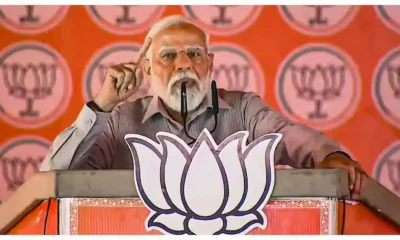
 2024 Lok Sabha Elections15 hours ago
2024 Lok Sabha Elections15 hours agoPrime Minister Narendra Modi says RJD is responsible for destroying Bihar, slams Lalu’s party over various corruption cases
-
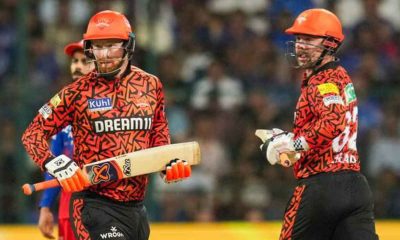
 Cricket news17 hours ago
Cricket news17 hours agoIPL 2024: Travis Head smashes brilliant century, Pat Cummins takes 3 wickets as Sunrisers Hyderabad defeat Royal Challengers Bengaluru by 25 runs
-
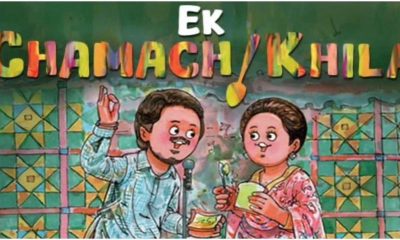
 Entertainment14 hours ago
Entertainment14 hours agoAmul pays tribute to Diljit Dosanjh, Parineeti Chopra starrer Amar Singh Chamkila
-
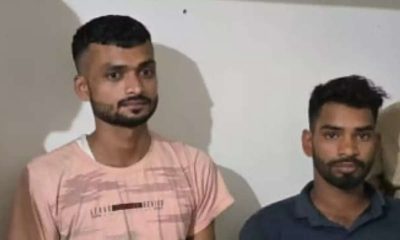
 India News17 hours ago
India News17 hours ago2 shooters arrested from Gujarat for firing outside Salman Khan’s house
-
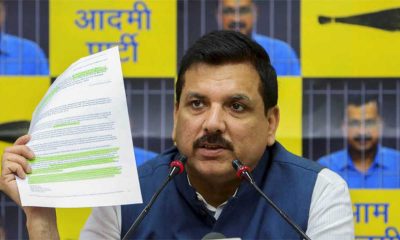
 India News15 hours ago
India News15 hours agoMy name is Arvind Kejriwal and I am not terrorist: Sanjay Singh reads Delhi CM’s message from Tihar Jail
-
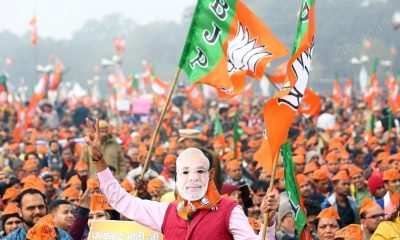
 2024 Lok Sabha Elections15 hours ago
2024 Lok Sabha Elections15 hours agoLok Sabha elections 2024: BJP releases 12th list of candidates, Udayanraje Bhonsle to contest from Satara
-
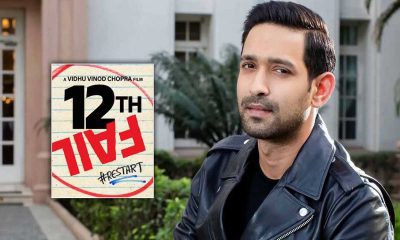
 Entertainment12 hours ago
Entertainment12 hours agoVikrant Massey’s 12th Fail to release in over 20,000 screens in China
-
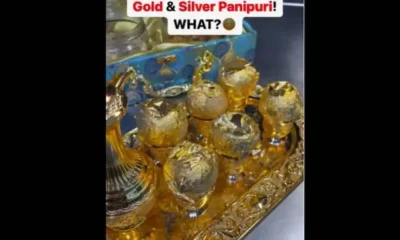
 Food12 hours ago
Food12 hours agoBengaluru outlet selling gold and silver panipuri goes viral

